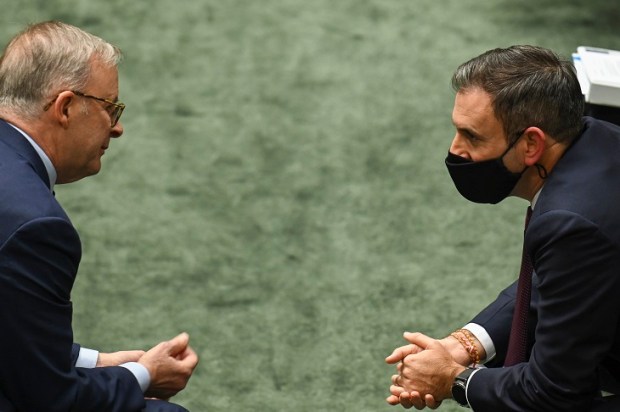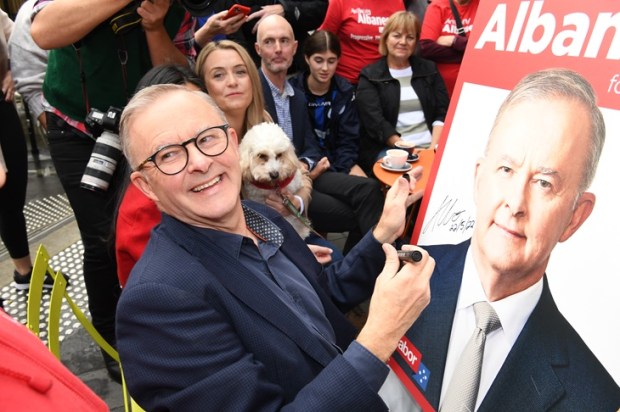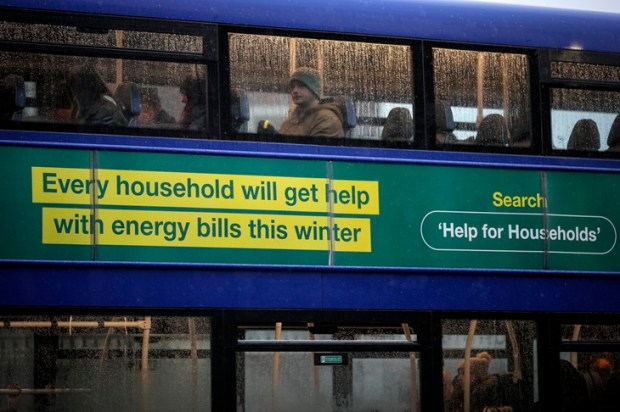Do you recall Labor’s announcement during the 2022 election that it was going to increase immigration to record high levels? Do you remember Anthony Albanese’s election pledge that a Labor government would import more than 650,000 souls (in net terms) within two years and amid a housing crisis?
You don’t? Nor do I. In fact, Albo and his Labor cohorts never mentioned their Big Australia-on-steroids immigration plan at all prior to forming government.
As reported in The Australian last week, Labor has, without any prior warning to electors, almost doubled the former Coalition government’s already-high net migration target for 2022-23, from 180,000 to over 350,000 – enough people to almost fill a city the size of Canberra in a single year. That’s nearly a thousand new migrants a day, all requiring housing, infrastructure, and public services.
Albo’s immigration minister, Andrew Giles, has been throwing around visas like confetti, with more than 5.4 million temporary and migration visas ‘finalised’ since Labor came to power. At 29.1 per cent, the foreign-born share of the resident population has eclipsed any previous historical peak and will continue rising rapidly. It is already higher than every other developed country.
In a healthy democracy, immigration policy would be subject to an open and rational national debate and the public would be consulted about the optimal scale, speed, and type of immigration. After all, immigration policy affects nearly every aspect of national life, from the housing and labour markets to the quality of life and social fabric of our communities and the state of the environment. It has profound implications for those living in Australia now and for generations to come; it determines who we are, who we want to be, and how we want to live. As Geoffrey Blainey put it, immigration is everyone’s business.
Sadly, Australia’s democracy isn’t as healthy as it should be. Our ruling class does everything it can to limit public debate about the appropriate rate of immigration to Australia. Annual immigration numbers are set behind closed doors, with usually only the voices of select rent-seeking business groups listened to. The views of ordinary Australians are contemptuously ignored.
Both Labor and the Liberals are guilty. But now Albo has initiated the largest immigration surge in Australia’s history without any sort of social licence. The Australian Population Research Institute asked voters in September last year about their views on immigration and population growth. Voters were asked in the survey whether they supported a restoration of pre-pandemic levels of immigration (around 240,000 a year) and whether they thought that Australia needed more people. The answers were negative on both counts.
Only 18 percent of survey respondents favoured a return to pre-pandemic immigration numbers, with a firm majority wanting lower levels of immigration. Only 35 per cent believed that Australia needed a bigger population. Those opposed to Big Australia immigration rates named overcrowded cities, struggling hospital services, environmental stress, and escalating housing costs as among their key concerns.
Australia’s horrendous housing predicament alone is reason enough to put the brakes on immigration. Relative to incomes, Australia has one of the most unaffordable housing markets in the developed world. Every day one reads yet another dire story about Australians being pushed into homelessness. The rental market is an unfolding national catastrophe, with vacancy rates below one percent in the major cities and rents skyrocketing (thereby adding to inflation).
Clearly, Australia cannot provide adequate shelter for its existing population. Under such circumstances, adding an extra 350,000+ people over 12 months into the demand queue is a cruel and reckless act. As economists have remarked, world-beating immigration levels are setting Australia up for a permanent housing shortage.
Albo, who is always keen to remind us of his public housing upbringing, is fuelling the worst housing crisis in living memory. It makes a complete mockery of Albo’s supposed concern for working Australians, who face a double whammy of higher housing costs and lower real wages as migrants flock in at record pace.
It is not a rational, but an extremist position, to continue accelerating immigration beyond any historical precedent and to do so at a time when so many of our citizens are struggling to even put a roof over their head. What Australia urgently needs is a return to immigration levels more in line with the historical average, somewhere in the range of 70,000-90,000 a year. Slowing the pace of new arrivals would allow housing construction and infrastructure to catch up, ease pressure on our choking cities, support wage growth, reduce the strain on our natural environment, and improve national cohesion.
It’s time for immigration policy to work for Australians. Our immigration program should not exist to gift cheap labour and more customers to self-serving business lobbies. Claims of ‘skill shortages’ need to be greeted with a healthy dose of scepticism. Australia in recent decades has run one of the largest per capita immigration programs in the world, importing millions of extra workers since the start of the century. And yet the country is still said to be suffering from widespread skills shortages. This would suggest that Australia’s pedal-to-the-metal immigration program has patently failed to meet its stated objectives. Why double-down on this needless population merry-go-round?
Home Affairs minister Clare O’Neil has commissioned a review into Australia’s immigration system. But the government’s idea of ‘fixing’ the system is likely to involve a further loosening of immigration rules. The majority of those making the decisions hail from the big end of town; marinated in Woke neoliberalism, not the old-school labour movement. Expect the Australian Labor Party’s war on Australian labour to continue.
Got something to add? Join the discussion and comment below.
Get 10 issues for just $10
Subscribe to The Spectator Australia today for the next 10 magazine issues, plus full online access, for just $10.


























Comments
Don't miss out
Join the conversation with other Spectator Australia readers. Subscribe to leave a comment.
SUBSCRIBEAlready a subscriber? Log in